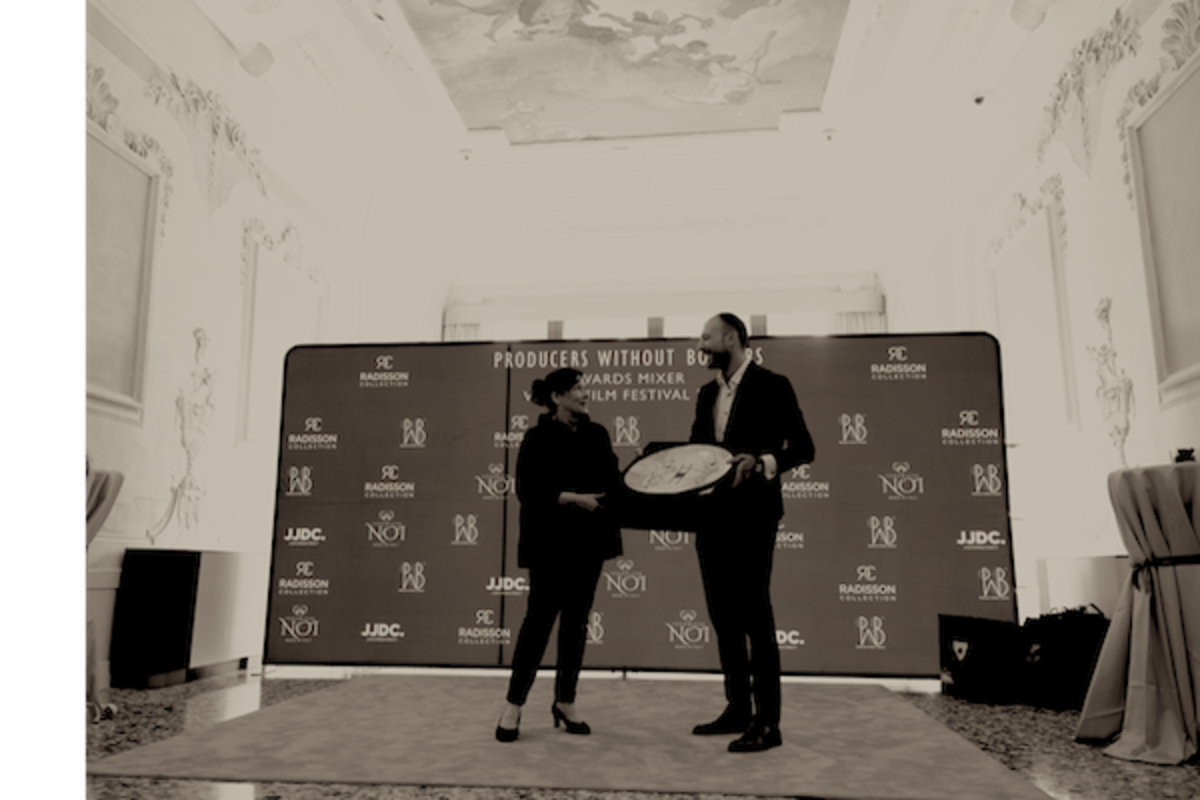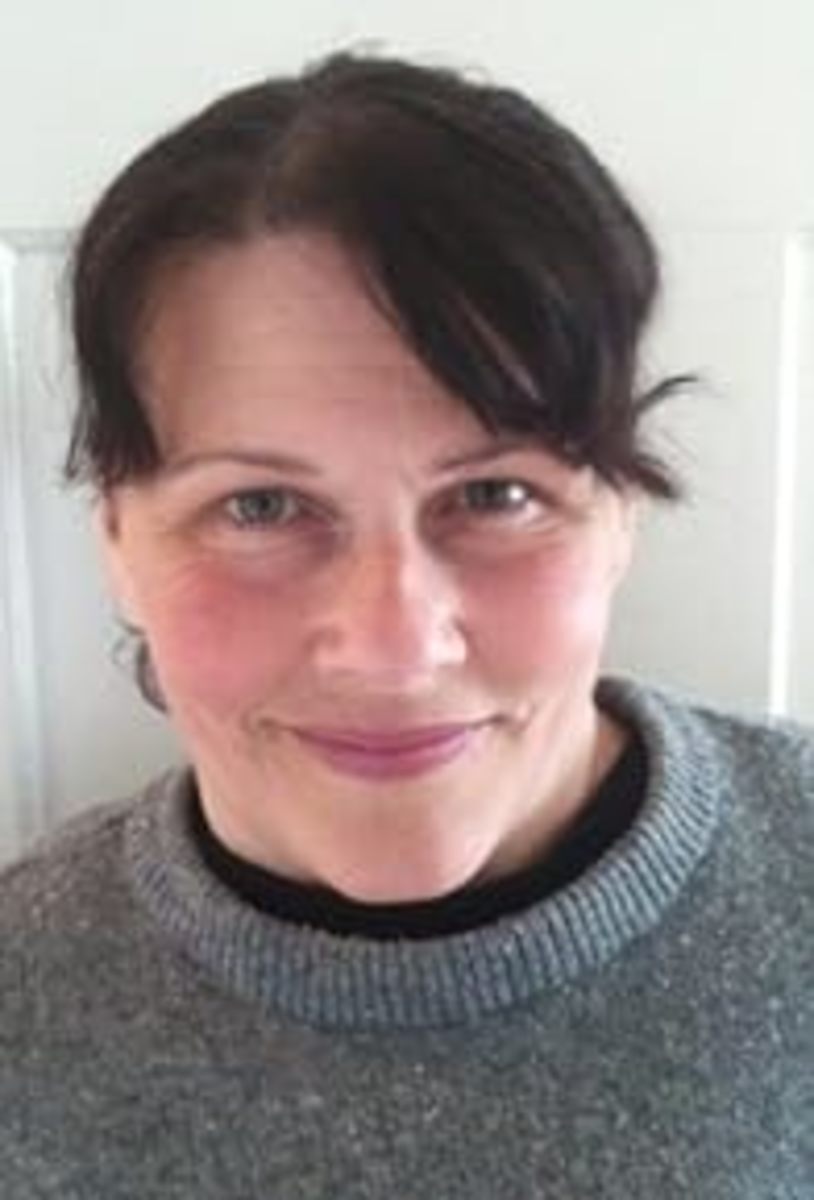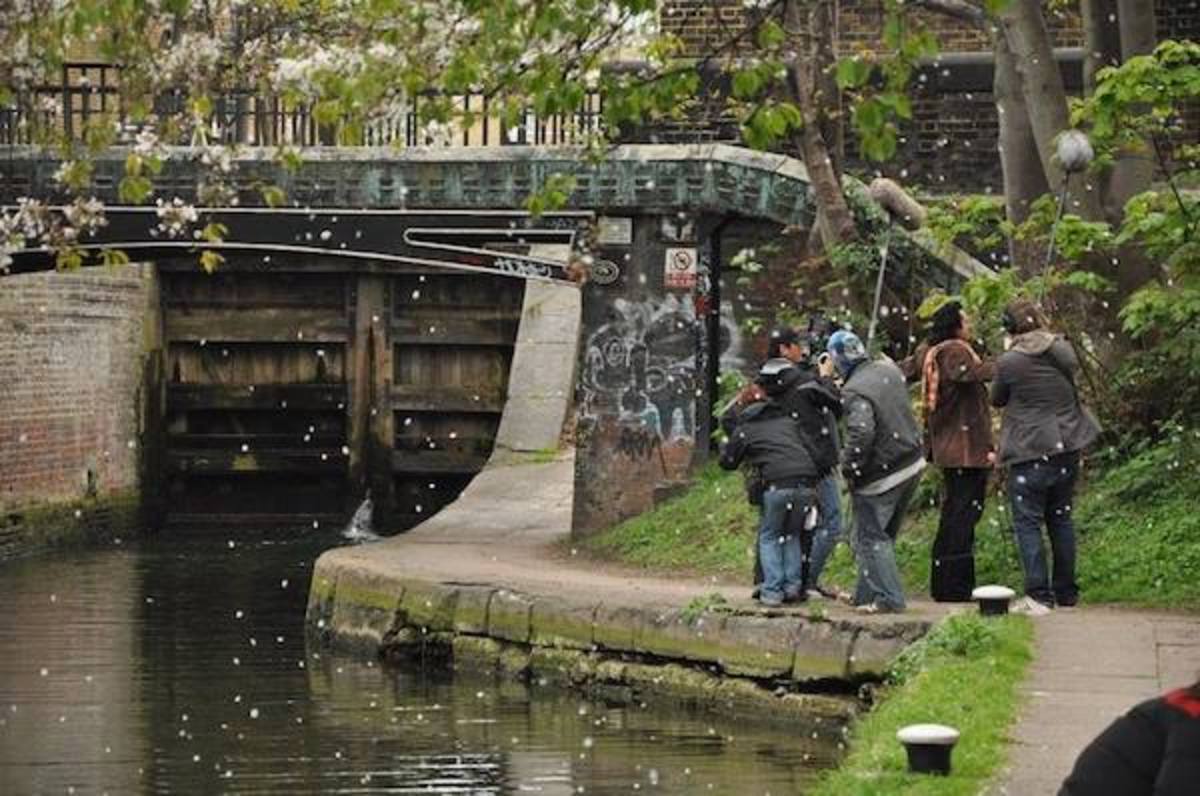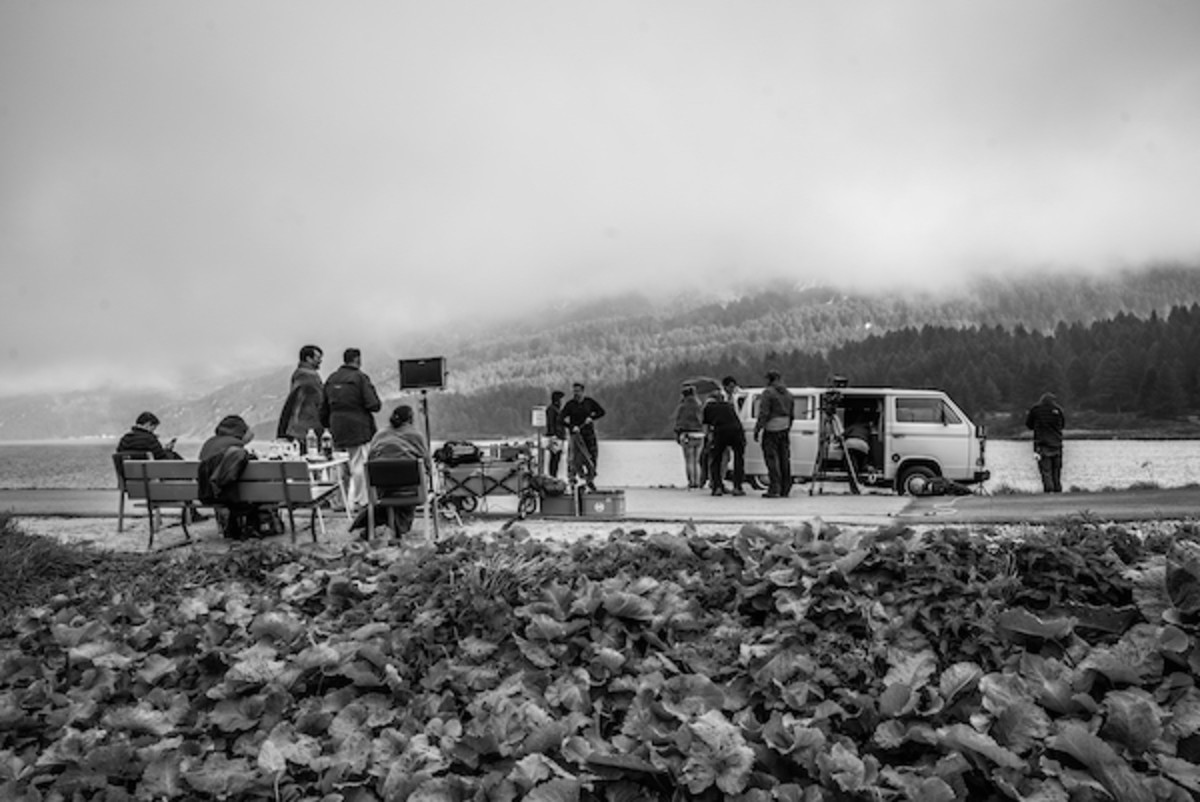September 2023
Writer and director Jane Spencer, an expat American independent filmmaker based in Zurich, Switzerland, talks about her four features and her decades-long career.
Fresh off her award as a filmmaker from Producers Without Borders at the Venice Film Festival 2023 for ‘Auteur and Poetic Filmmaking’, I spoke with writer and director Jane Spencer, an expat American independent filmmaker based in Zurich, Switzerland, about her four features and her decades-long career.

KOUGUELL: Congratulations on your recent award at the Venice Film Festival.
SPENCER: It was quite a surprise and a great honor.
KOUGUELL: You are a fiercely independent filmmaker who made a conscious decision to not work in the studio system.
SPENCER: My pieces are so personal; it’s very hard for me to work for the studios. I tend to be a loner as to ideas and what I want to make. I am moved by European cinema, which tends to be auteur cinema, including Wim Wenders and Agnes Varda, as well as American filmmakers like Tom DiCello and Alison Anders who came up in the 1990s.
KOUGUELL: You studied in the United States, including the Actors Studio Playwrights/Directors Unit in New York City and film at New York University. How did these experiences influence you?
SPENCER: At the Actors Studio I was inspired by the legendary directors Elia Kazan, Arthur Penn and Joe Mankiewicz, among others. I remember Kazan saying that writers should direct their own movies and I took that to heart. When I was at NYU, Spike Lee suggested we shoot a three-minute teaser and to make it look as good as we can; that’s how he made his first movie.

So, I wrote Little Noises, which took one year. I worked with writer Anthony Brito, who came up with the idea, and Jon Zeiderman and I wrote it. I took the project to producer Sandra Schulberg who liked the teaser and script, and thanks to her, got it to Henry Jaglom who had formed his women’s film company. Henry got the film off the ground and gave it to producers who raised the financing.
KOUGUELL: Little Noises premiered in 1991 at Sundance and was nominated for a Grand Jury Prize. The making of this film was quite a journey for you.
SPENCER: I consider Little Noises the boot camp for everything that could happen – happened. It was a difficult time; I didn’t have much power on the film and the producers chopped up my movie. I am grateful to them for raising the finance and trusting me to shoot it, but unfortunately they were also new producers and they mishandled the film totally, and did not look after it and still don’t. I am currently trying to get it back so that it can have a new life after the abysmal thing they pulled at Sundance; my film was accepted to Sundance on my rough cut. They recut several ‘key’ sections of it without my permission, which – in my opinion and many others’ opinions – harmed the screening. I did get it back and I recut it properly and we got some very good reviews and a theatrical release based on my new cut, which was based on my original rough cut. I continue to be so proud of Little Noises; both Crispin Glover and Steven Schub gave brilliant performances.
After that experience I became a producer on all my movies. As a director, at least in the American system, once you option your work, you give up your copyright, unless you’re a Scorsese, and even then, they can cut it, put in different music, and so on.
KOUGUELL: You also write and direct your own plays.
SPENCER: I worked in theater in England, Los Angeles and New York to recover from my first film, and then worked with theater producer Steven Adams, who now works with Spike Lee. I decided to take one of my plays, Faces on Mars, a dark comedy about a bunch of actors living in one room in Silver Lake and adapted it to a screenplay. It premiered at the Solothurn Film Festival in Switzerland.
KOUGUELL: In 2014, your next feature The Ninth Cloud premiered at the Raindance Film Festival in London. Let’s talk about that process.
A dark, existential comedy about a young woman trying to find answers to the meaning of existence. In London she runs into a pack of strange characters, from bohemian struggling artistes to monied British aristocrats with all their varying agendas, as she tries to help an impoverished immigrant child with a leg problem.

SPENCER: This experience taught me how to produce movies. First I shot a trailer for the film, and from that raised the financing independently and did the casting, and so on – it took about four years. After Raindance, the film went on to the Shanghai International Film Festival (CN), La Femme Film Festival (Los Angeles), and the Glasgow Film Festival in Scotland. The film garnered great reviews and was released in April 2018 in Europe and the UK and can be seen on iTunes and Amazon Prime in the USA and UK.
KOUGUELL: You have your own production company in Zurich.
SPENCER: Mostly I work through my own company Ward9 Productions, with my partner Marc Holthuizen. Once in a while, I will work on other people’s scripts. Right now I’m working with Robbie Wolliver and his wife Marilyn Wolliver on Robbie’s award-winning play Folk City, which I’m very excited about.
KOUGUELL: Let’s talk about your fourth feature, your new film South of Hope Street, which you described as a fable-like story about contemporary times.
South of Hope Street
In 2038 earth reaches a cosmic tipping point and enters a mysterious universe. To perpetuate the old order, people hide behind a gigantic wall and engage in wars. In this dystopian wonderland, Denise (Tanna Frederick) walks on thin ice to believe in her future, spurred on by Tom (Judd Nelson), a caretaker, who promises that a renaissance is on its way. Also starring William Baldwin, Jack McEvoy, Patricia Sluka, Meredith Ostrom, Pascal Ulli, Angelo Boffa, Asser Yassin, Gianin Loffler, Barry O’Rourke and Michael Madsen as Benjamin Flowers.

KOUGUELL: Similar to some of your previous projects, this began as a short film.
SPENCER: Yes, the short starred Tanna Frederick and Hilmir Snaer Gudnason of 101 Reykjavik. We shot the feature in Switzerland in Zurich and in the Swiss Alps of Maloja, near St. Moritz. We all stayed at the giant empty hotel The Maloja Palace; and the actors recalled that it was like The Shining. (Jane laughs). The cast and crew were wonderful.
KOUGUELL: You mentioned that you needed a 1960s soundtrack because there is a time traveler in your script. Perseverance paid off; you didn’t let your low budget stop you.
SPENCER: First, we went to some big name artists like Mick Jagger but we were blocked by the record companies who wanted more than we could afford. A producer friend then approached Donovan’s music publisher, showed them clips of the film where we wanted music, and they liked the clips and gave us a deal. Donovan was very kind.
KOUGUELL: South of Hope Street was recently picked up for distribution.
SPENCER: Buffalo8 Films is our U.S. distributor. We are planning on a Los Angeles premiere but we are waiting for the strikes to be over.
KOUGUELL: Tell me about the projects you currently have in development.
SPENCER: The Red Weather is being produced with FilmsInTuscany and The Velvet Gentleman, the story of the eccentric French composer Erik Satie, who will be played by the great French actor Jean-Hugues Anglade.